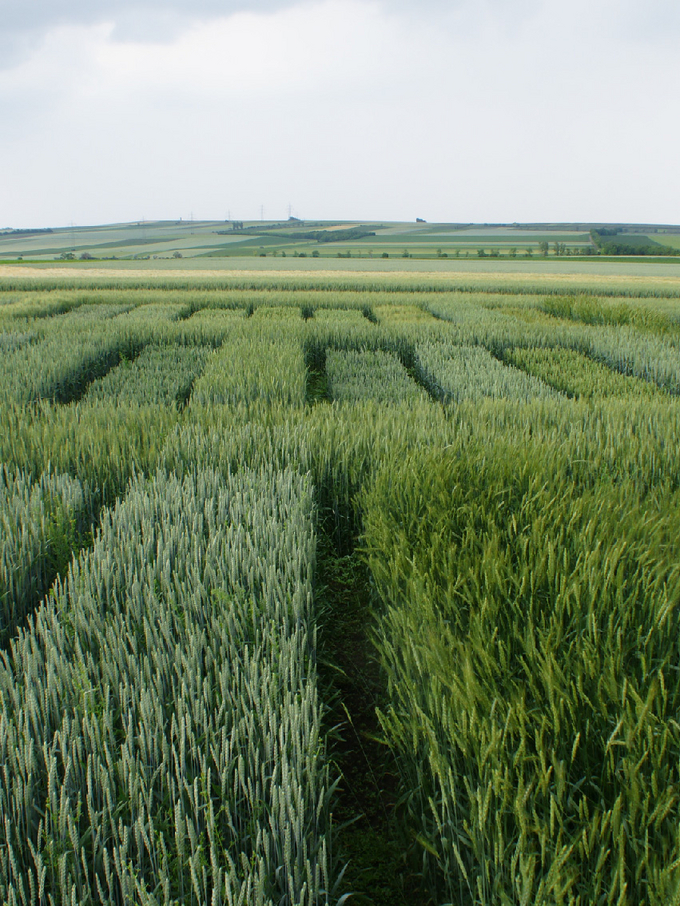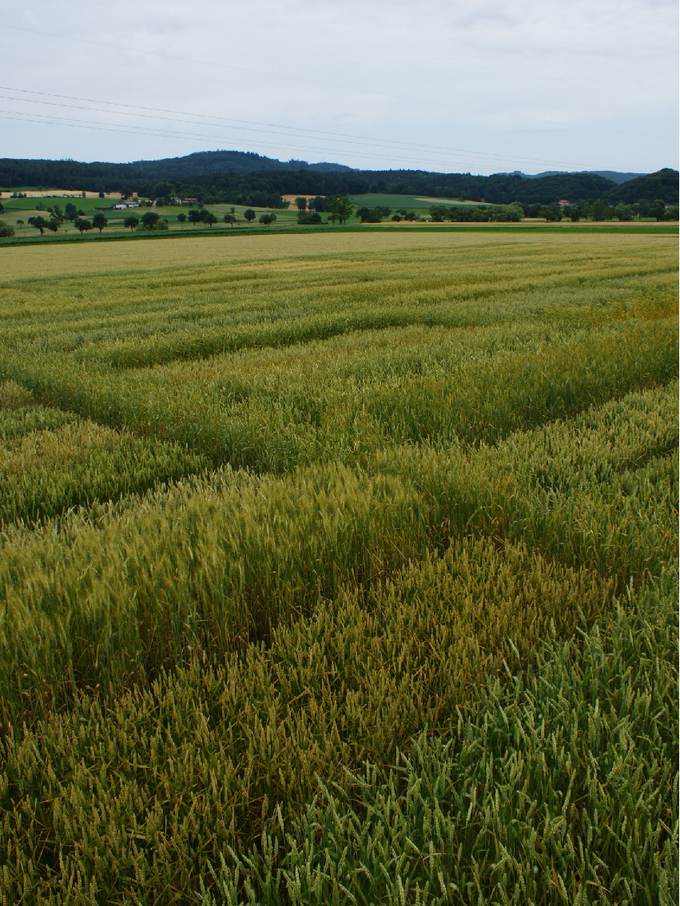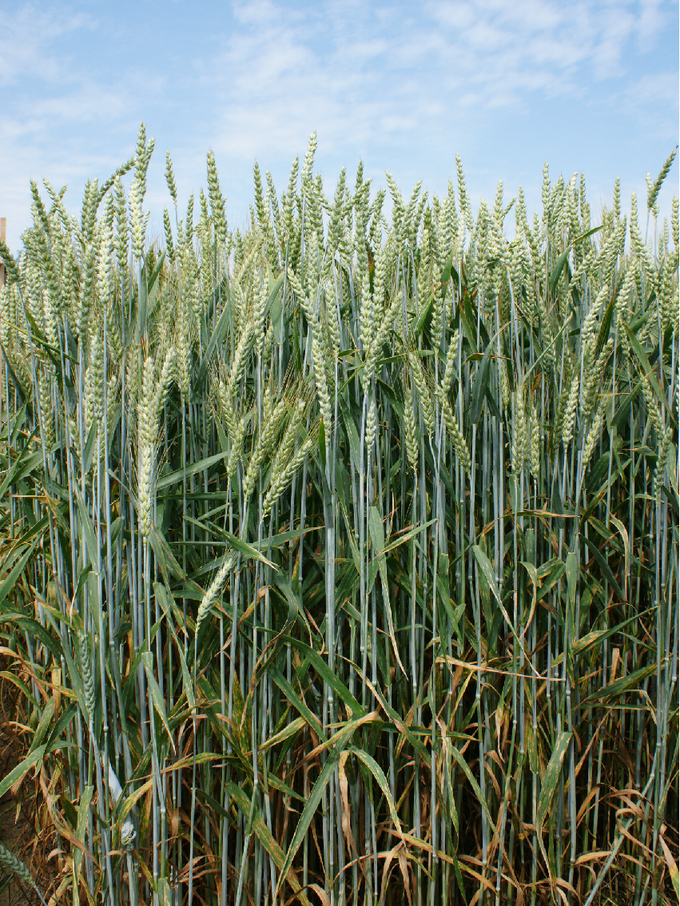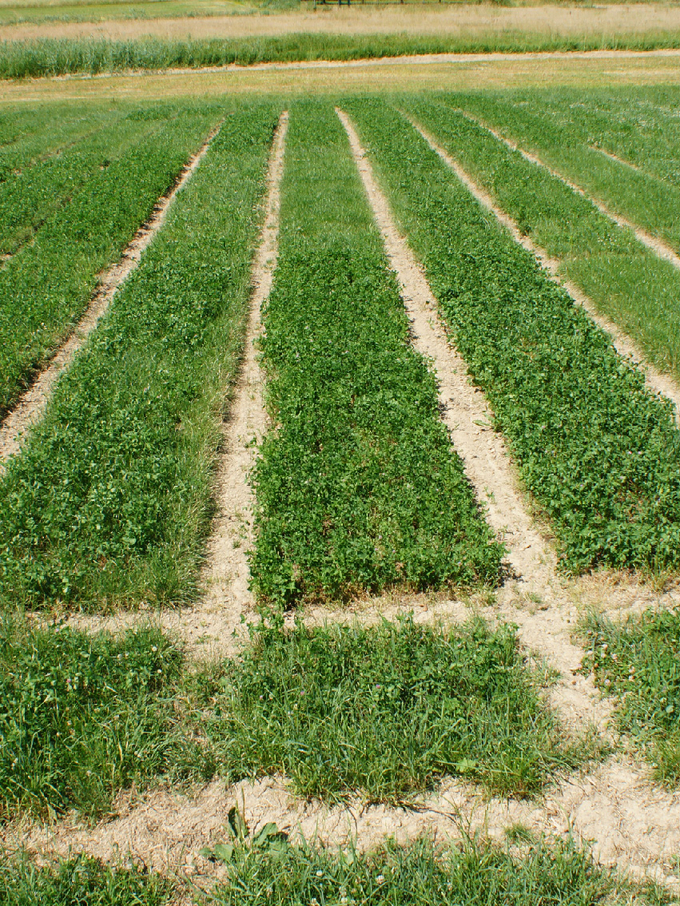Summary
The Horizon 2020 project INVITE promotes plant varieties with high resistance to adverse environmental conditions. To this end, variety testing will be improved to better assess the characteristics and performance of new varieties. With the help of models, improved networks and databases, a faster and more efficient variety testing is emerging following the project.
Project description
The aim of the INVITE project is to promote new varieties with high resistance to biotic (living) and abiotic (e.g. chemical and physical) stresses. Existing varieties will be better adapted to sustainable farming practices and more resilient to climate change through research and breeding. Different tools for genotyping (determining differences in genetic makeup) and phenotyping (determining appearance) are being tested in variety trials on wheat, corn, sunflower, forage grass (English ryegrass), potato, tomato, apple, and soybean, canola, and alfalfa crops. These species represent the entire food and feed production of the EU in their diversity and breeding frequency.
The following topics are being worked on:
- Identification of plant traits and bioindicators associated with efficiency, sustainability and resistance to different environmental conditions.
- Development of new phenotyping and genotyping tools to evaluate bioindicators related to better adaptation to more sustainable cropping practices and variable climatic conditions, and to improve the speed, accuracy and efficiency of variety testing
- Creation of crop models and statistical tools that allow prediction of varietal performance
- Improving existing variety testing protocols for variety characterization (distinctness, uniformity and stability - DUS) and performance testing (VCU)
- Definition of new procedures for the management of reference collections
- Proposals of organizational innovations to improve variety testing networks, taking into account their socio-economic and environmental impact
- Recommendations to policy makers to improve harmonization of DUS and VCU testing at the EU level
- Facilitate data exchange within the consortium and build a prototype common database
- Design of a prototype decision support system for variety selection (DSS-VC).
As part of the project, we are providing historical VCU and DUS data as the testing office for national variety approval and as the testing office for post-registration variety trials. We are also involved in international trials in wheat, maize and raygrass-clover mixtures. For the soybean crop, we provide the crop type manager in the project. We are responsible for the topics harmonization of variety descriptions in the national descriptive variety lists and evaluation of synergies between VCU and DUS testing.
Interim results
Historical data going back to 2003 were provided from value testing in winter wheat, corn, sunflower, English ryegrass and soybean and from register testing in wheat, corn, soybean.
Wheat
Variety trials in wheat including variety mixtures and populations under organic and conventional conditions in 2021 and 2022 in Großnondorf and Grabenegg, in Großnondorf with soil sensors.
In winter wheat, we were involved in international trial series at the Großnondorf (Hollabrunn district) and Grabenegg (Melk district) locations with an international assortment, variety mixtures and populations under organic and conventional conditions. Soil sensors were installed in Großnondorf and provided the data. The field trials were completed in 2022, and the results have not yet been finally evaluated. Dough and baking tests were also conducted.
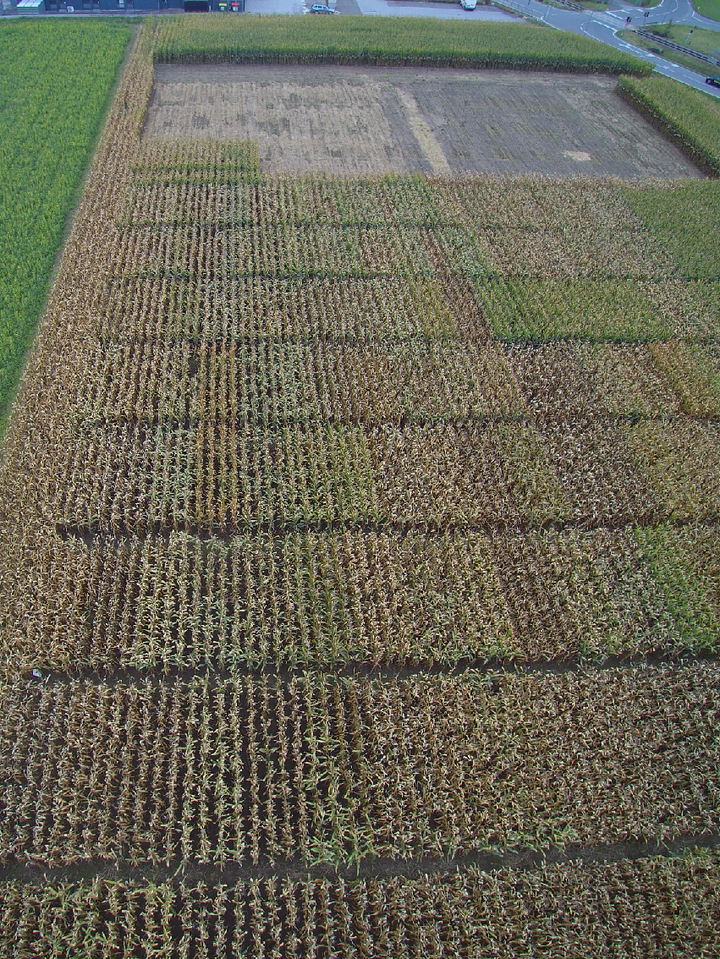
Grain corn
For grain maize, there were internationally coordinated variety trials in Gleisdorf in 2021 and 2022, and additionally at the Pachfurth trial site in 2022. The following parameters were collected in the corn trials: Grain yield, grain moisture, thousand grain weight, stalk lodging, root lodging, early growth, incidence of the pests Helminthosporium turcicum and Ustilago spp., plant height, silking flowering, leaf maturity and plant number. Leaf number, plant height, total height (incl. panicle), cob attachment height, leaf senescence (first signs, +15 days, + 30 days), extent of cob pollination, leaf size, and grain rows on the corn cob were also collected on selected standard varieties. In addition, weather data (air temperature, humidity, rain, wind speed) and soil data (course of soil water content) were collected. The results obtained are used by the project partners to create models.
Wheat and spelt
In connection with drone flights, we tested the"Canopeo" ground cover app system in the organic VCU wheat and spelt/wheat trials at BBCH 43-47, correlating digital values for ground cover levels with visual observations. A drone flight over the wheat INVITE trials and over VCU trials in June 2022 targeted RGB, NDVI (vegetation index), CIR (color infrared), and single ear detection parameters. These data are correlated with grain yields.
Forage crops
We conducted trials of English ryegrass-red clover mixtures at the Grabenegg and Hagenberg experimental sites in 2021 and 2022. The guidelines for variety trials are to be expanded for trials with species mixtures. Species content was recorded in addition to the usual parameters used in forage variety testing. New phenotyping tools were also tested.
Harmonization of Variety Rating Scales
We led the task on harmonization of variety evaluation scales and synergisms between VCU and DUS tests. A survey to national variety approval testing offices (EOs) and post-approval variety testing organizations (PROs) in the INVITE project explored the possibilities of harmonizing national lists of recommended varieties.
Another survey explored synergies between VCU and DUS testing In summary, there is a willingness among INVITE EOs and PROs to harmonize scales in national descriptive and recommended lists. However, they pointed out the high value of long-term data sets and some could not imagine changing their system based on the raw data. However, harmonization in the use of rating scales would not require their change.
Countries that want to adapt their rating systems are recommended to discuss with stakeholders and economic operators as a first step a change to a scale rating with a score of 1 for a very low expression of a characteristic and 9 for a very high expression.
The possibilities for synergies between DUS and VCU tests were evaluated for each of the plant species tested in INVITE. 28% of the parameters are partially used in DUS and VCU testing. However, there are differences between countries. Some parameters are transferred from DUS testing to value testing, such as seasonal type in wheat. Others are better suited for synergies, such as umbilical color in soybean. Differences in scales between VCU and DUS should be avoided for these parameters. In the future, image analysis could be used more often for visual characteristics in VCU and DUS.
Project details
Project acronym: INVITE
Project management: Francois Laurence, INRAE
Project management AGES: DI Clemens Flamm
Project partners: INVITE brings together 29 partners from twelve European countries: Research Institutes and Universities, Examination Offices for National Variety Approval (EOs), Post Approval Variety Testing Organizations (PROs), a technical institute for advisory services, private breeding companies, a breeders' representative, a policy and impact assessment consultancy and a specialized project management company. More information on the project partners can be found on the INVITE project website.
Funding: the INVITE project is funded by the EU Horizon 2020 research and innovation funding program, Grant Agreement No. GA 817970.
Project duration: 07.2019 to 12.2024
Publications
Flamm Clemens: Invite - Innovations in European Variety Testing. 75th Annual Meeting of the Working Group for Veterinary, Food and Agricultural Sciences (ALVA), Oct 2021, LFZ Francisco Josephinum, Wieselburg, Austria.
Flamm Clemens: Comparison of the descriptive/ recommended lists of Europe and synergies between DUS and VCU. 14th EU-VCU Expert Seminar, online, Sept 2021, Agroscope, Switzerland.
Flamm Clemens: INVITE project: Where is the journey of variety testing in Europe heading? Proceedings of the 7th D-A-CH-Meeting for applied Cereal Science, Oct 2021, AGES, Vienna.
Heiden Caroline: Evaluation of baking quality of wheat population varieties. Proceedings of the 8th ICC D-A-CH-Convention, 6th - 7th Oct. 2022, Uzwil, Switzerland.
Field days
Hagenberg: Field day 22 June 2021, Hendler Martin: Clover-grass mixture trial from the INVITE research project Comparison of Austrian seed mixtures for intensive use.
Gleisdorf: Virtual field visit 20 July 2021, Bernhard Muchitsch: Presentation of the INVITE maize trial in Gleisdorf to INVTE partners
Grabenegg: Field day Sept. 7, 2021, Hendler Martin: Presentation of INVITE raygrass trial to farmers and consultants
Grabenegg and Großnondorf: Virtual field visit 9 June 2022, Flamm Clemens, Guger Michael and Heiden Caroline: Presentation of INVITE wheat trials in Grabenegg (conventional) and Großnondorf (conventional and organic) to INVTE partners.
Hagenberg: Field day 21 June 2022, Hendler Martin: Presentation of the clover-grass mixture trial from the INVITE research project to farmers, objectives.
Gleisdorf: field day August 29, 2022, Starnberger Philipp and Hans Felder: Presentation of INVITE maize variety trial to farmers and advisors.
Last updated: 04.09.2024
automatically translated
